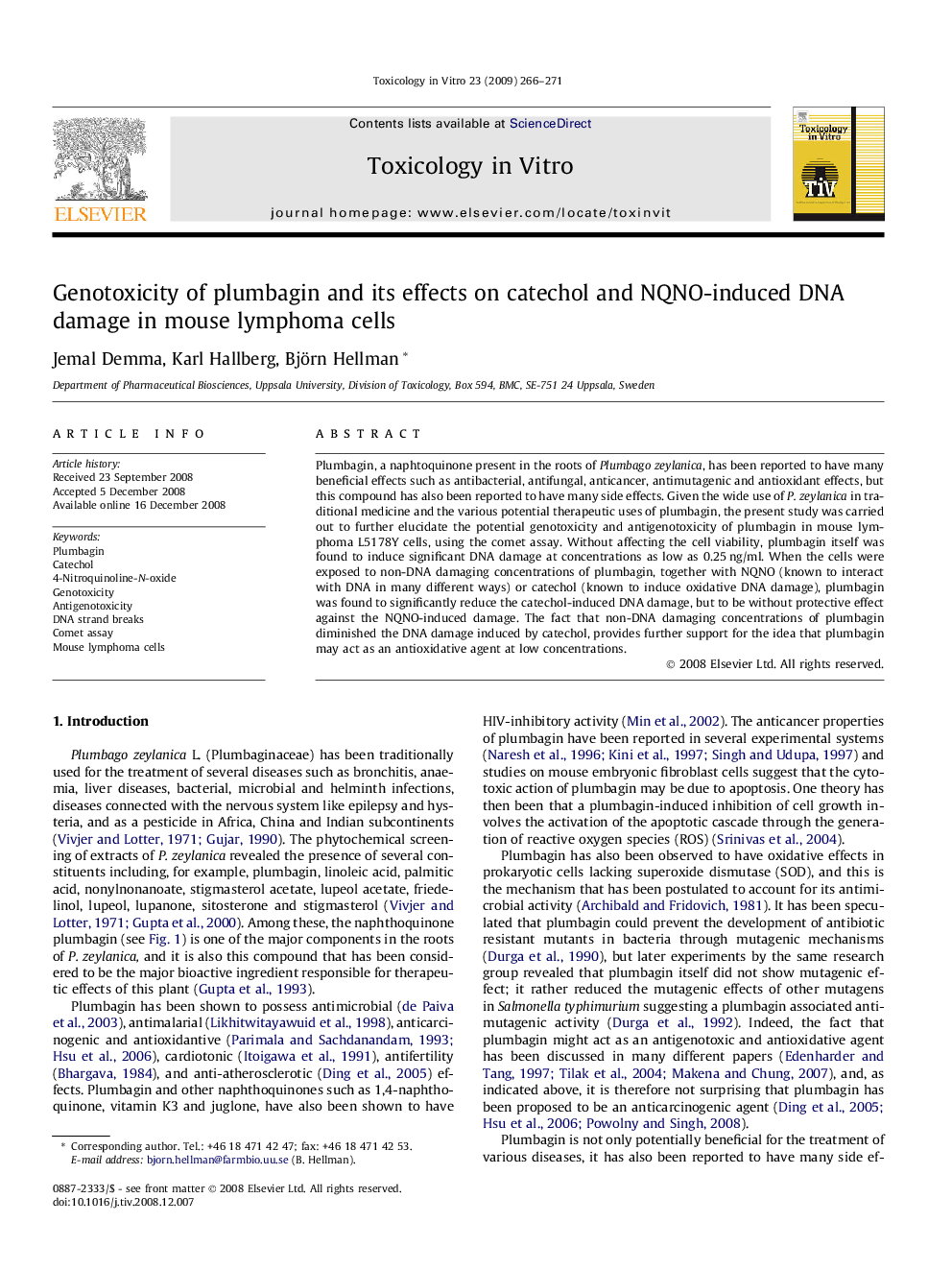| Article ID | Journal | Published Year | Pages | File Type |
|---|---|---|---|---|
| 2603130 | Toxicology in Vitro | 2009 | 6 Pages |
Plumbagin, a naphtoquinone present in the roots of Plumbago zeylanica, has been reported to have many beneficial effects such as antibacterial, antifungal, anticancer, antimutagenic and antioxidant effects, but this compound has also been reported to have many side effects. Given the wide use of P. zeylanica in traditional medicine and the various potential therapeutic uses of plumbagin, the present study was carried out to further elucidate the potential genotoxicity and antigenotoxicity of plumbagin in mouse lymphoma L5178Y cells, using the comet assay. Without affecting the cell viability, plumbagin itself was found to induce significant DNA damage at concentrations as low as 0.25 ng/ml. When the cells were exposed to non-DNA damaging concentrations of plumbagin, together with NQNO (known to interact with DNA in many different ways) or catechol (known to induce oxidative DNA damage), plumbagin was found to significantly reduce the catechol-induced DNA damage, but to be without protective effect against the NQNO-induced damage. The fact that non-DNA damaging concentrations of plumbagin diminished the DNA damage induced by catechol, provides further support for the idea that plumbagin may act as an antioxidative agent at low concentrations.
